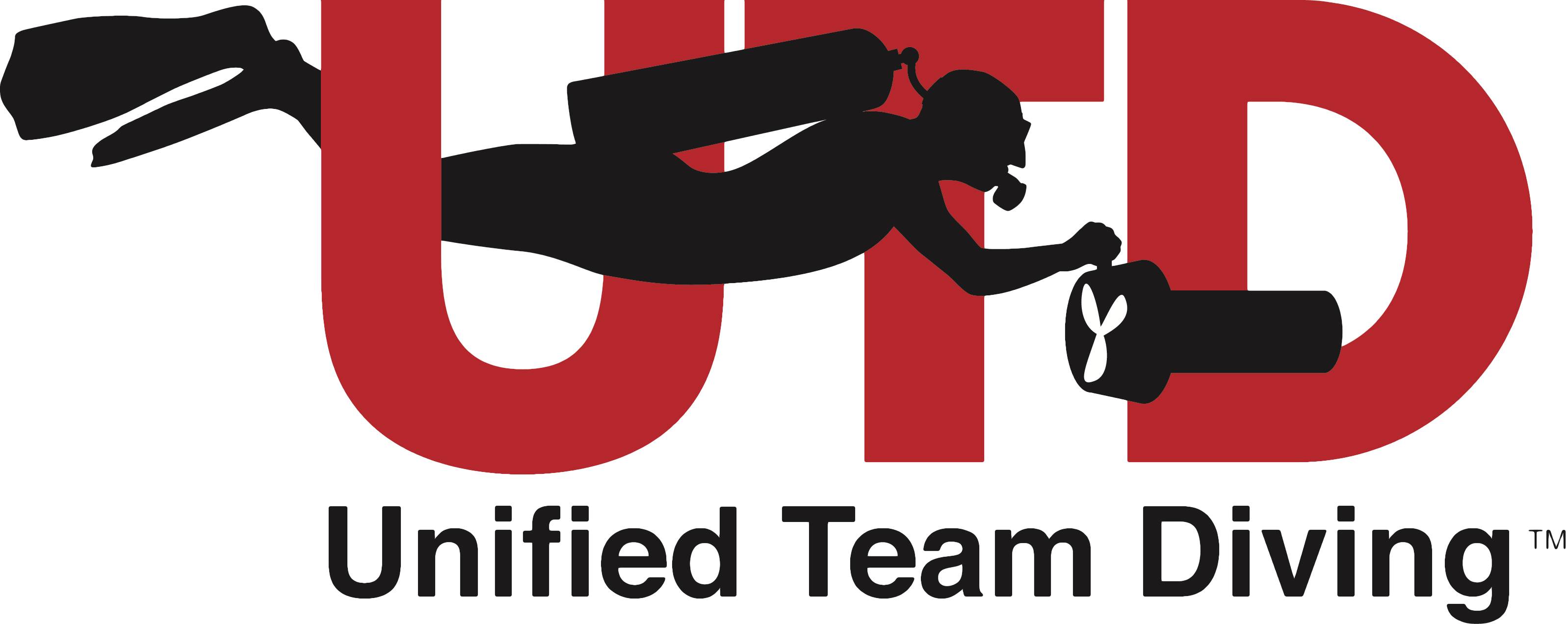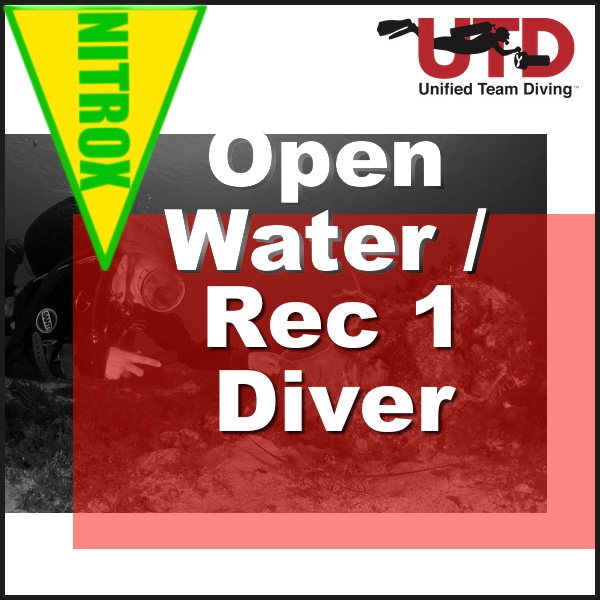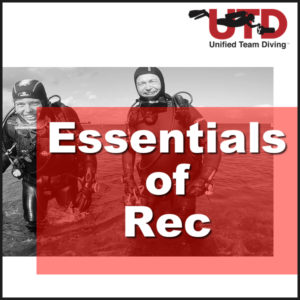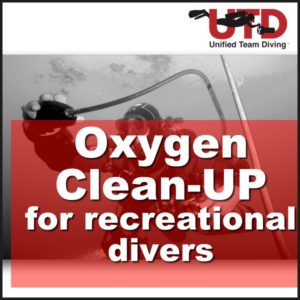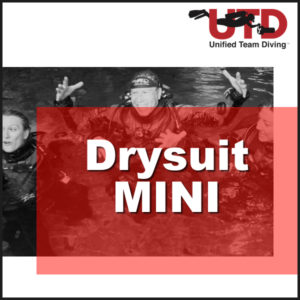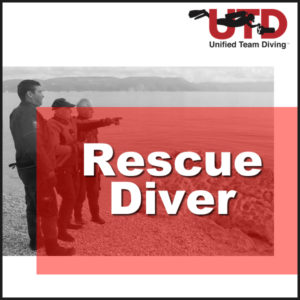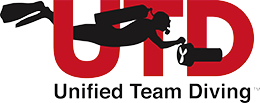Description
UTD Open Water Diver, Recreational 1 Diver
What is the goal?
During the UTD Open Water Diver course or Recreational 1 ( Rec 1 ) Diver course we aim to make you a well-rounded and confident beginner diver. Our goal is to teach you the correct techniques from day 1. Starting with getting to know your body, as it acts differently in the aquatic environment. This is why we start with breathing and learning to control things like balance, breath control, proprioceptive awareness, mammalian diving reflex, and general water comfort.
Scuba diving is a hobby that heavily relies on equipment and theoretical knowledge, therefore this first step is often omitted. We believe this first part of developing your awareness around yourself unencumbered by equipment is the most crucial part of the beginning diver. It sets you up for success when you start to use the equipment and start applying the theory in practice.
Many of the exercises you will learn as a new diver as reactions to “What if”, like what if your mask leaks, or what if your mouthpiece breaks, or what if you need to adjust your buoyancy? Basically, you will learn to react to things while you are diving. Now I don’t assume your idea of diving is crawling along the bottom. Therefore all these procedures and skills are developed while you are free from the bottom and in what is called a “neutral” position in the water, neither floating to the surface nor sinking to the bottom, but like a fish in mid-water. Hence its important to learn to control yourself before we have you doing all sorts of drills and skills underwater. The result is what we call an ocean-friendly diver.
Now when we come to the equipment and apply the theory in practice, we give you an advantage for future scuba training and development. It’s almost impossible for you, the aspiring new scuba diver, and your instructor to know what exactly catches your fancy when it comes to exploring the wonderful world under the surface. The advantage you get has to do with the building block principle we use in all our scuba diving courses. The course structure is built up with, what we call:” The end goal in mind”. That means that we apply the same protocols of our most advanced courses also to our beginner-level courses, although being it in a simplified manner. This ensures that you never have to un-learn something to progress along your diving ladder. For example, we use the same hand signals, gas usage and reserve planning, equipment configuration, and emergency procedures in ALL our classes.
The difference between our Open Water Diver Program and our Rec 1 Diver is that with the Rec 1 Diver program, you will get to learn more about diving with Norton to extend your bottom time and you will get one more training dive, where you will use Nitrox. Nitrox in oxygen-enriched gas. Ask your instructor for more details.
Who is it for?
- So are you looking to get certified as an Open Water Scuba Diver, and want to start exploring the underwater world, you have come to the right spot. Are you a person who seeks to get the most out of what you engage yourself with and expects the highest level of commitment and quality from your instructors, you might find we are the organization for you. We are however not for everyone. If you consider scuba diving just something you want to give a shot or just want a taste befor committing to a full course. We suggest to talk to your UTD instructor, they might have a program like “try dive” for you to check the waters, as they say.
To enroll in our UTD Open Water Diver or Rec 1 course you need to:
- Be over the age of 15 years old
- Have good health ( you will go through a medical questionnaire )
- Have reasonable fitness
- Be able to swim
How long does it take?*
The course duration for an Open Water Diver course can be as little as 4 days. But you can together with your instructor plan this out over a longer period also.
What equipment do I need?
You are not expected to own all you need before you start your course, however, it does pay off to own your private equipment. We suggest talking to your instructor before you make any investments ( also in used gear ) your instructor will be more than willing to help you find suitable equipment. We suggest you start by purchasing your own mask, snorkel, and fins.
What can I do after?
After successful completion of your course you will have earned the Open Water Diver certification. This means you will be able to:
- Dive all over the world with any other certified Scuba Diver to a maximum depth of 60ft or 18m, for the rest of your life.
- Rent scuba equipment
- Get Air fills or Nitrox fills as a UTD Rec1 Diver
- Enter further scuba courses, like the Essentials of Rec or Rec2 course (Advanced).
How do I get started?
Step 1: Purchase these online materials. These materials will be yours for life. Also, any future updates to these materials will automatically be updated so you can stay current with the latest knowledge. During the buying process, you will be guided through a registration waiver. Here you can choose your instructor. After the waiver has been completed your instructor will also be notified
Step 2: Reach out to your instructor and schedule the class
Step 3: Get going with the online materials and supplemental materials you might receive.
Step 4: Spread the word you are taking this class, and start building your UNIFIED DIVING TEAM.
The costs and pricing structure for UTD courses is almost always built up in 3 sections
1:The price for the course materials you buy directly at the UTD website.
2: The price for the in-person instruction from your instructor
3: Local fees or diving expenses. These could be entry fees, pool rental, equipment rental, etc. inquire with your instructor for details about this. If this course requires the instructor to travel to or with you, the students share the traveling costs of the instructor.
*The course duration is determined by a baseline of the abilities of the average students and coupled with what we need to comfortably introduce the skills and go over the theory content.
However, when you buy a UTD course from one of our instructors, you pay for training not for a “plastic reward for participation”. We will give you the ability to look at your strengths and weaknesses, and during the class, we can expand on your strengths and improve on your weaknesses.
Scuba Diving is highly skills-based and theory-based, throw in some complex equipment and you get a mixture of many aspects to master. You should be comfortable with all three aspects to get the most out of your diving and be safe. All of us learn at different paces. It is therefore almost impossible to give everybody the same timeframe to master the complete curriculum.
Some students might need more coaching or just more time to master certain aspects of the course. You can always do so by seeking out more training outside the curriculum and the time constraints of the standard course layout. You can find the price for extra training with your instructor.
If you together with your instructor decide that more training is needed, we have a document called “Path to completion” It will give you a clear path to reach your goal. That can be a beginner taking the first scuba class, or the advanced diver moving into technical diving. All will succeed…at their own pace.
